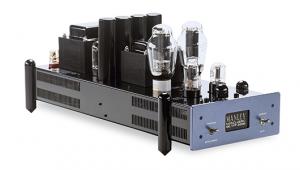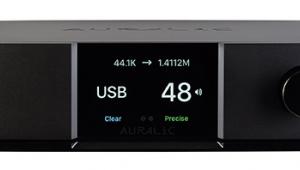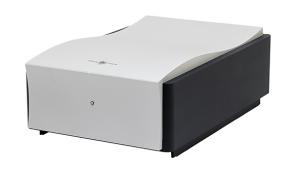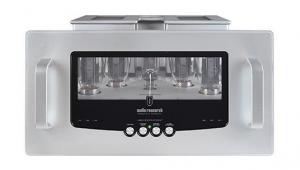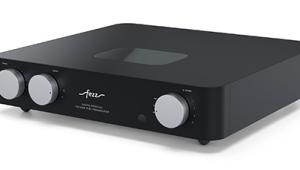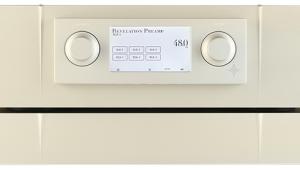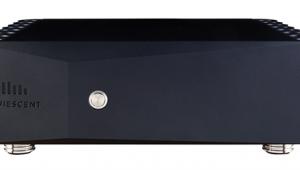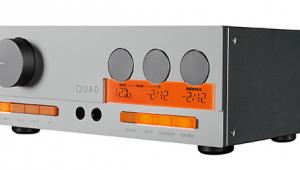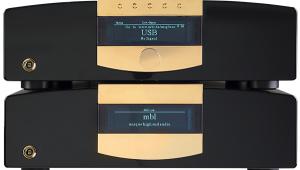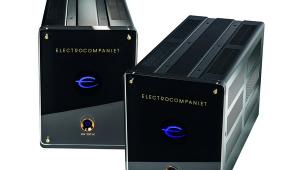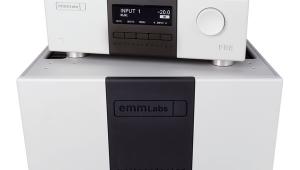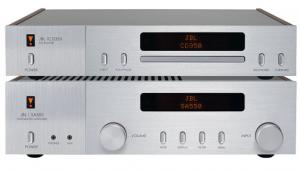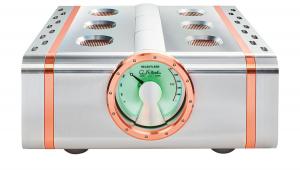Teac Ha 501 (£700)

Teac highlights a number of aspects of the 501’s circuit design. First that it operates in Class A, as evinced by the case running warm to the touch. Second, dual mono construction is clear when you remove the top plate to reveal two identical circuits side by side on the main PCB. There is a substantial toroidal mains transformer to energise them both which feeds (on a separate board) a shared regulated power supply and contributes to the unit’s chunky all-up weight of 4.1kg.
Servo circuits control DC offset on the outputs and the output stage is claimed to deliver up to 1.4W of output power into a 32ohm load – equivalent to almost 7Vrms. The 501’s USP, though, is its five-position damping factor selector located beside the volume control and accompanied by an illuminated ‘High * Mid * Low’ display, the asterisks demarking the intermediate settings.
What this does is vary the output resistance, supposedly to suit headphones of differing impedance as well as different listener tastes. The user manual says the sound is ‘crisper and livelier’ when the damping factor is high and ‘calmer and softer’ when it is low.
Other features of note on the front panel are an Aux input via mini-jack for connecting personal music players, and an automatic mute circuit that operates whenever the jack plug is removed from the single ¼in output socket.
On the back panel two unbalanced line inputs are provided via phono sockets and a third balanced input via XLRs. The input selector knob on the front panel switches between them, with a fourth position for the Aux socket. To allow the 501 to operate as a simple preamp, unbalanced outputs are also provided. A three-position sliding switch allows the output to be fixed in level, varied by the volume control or disabled.
It’s marvellous!
This is simply the best headphone amplifier we’ve heard to date for turning that rare trick of never leaving you wanting for resolution – it’s as bright and clear as lead crystal glass – while also never sounding relentless or grainy or strained. On the contrary, it delivers a wonderfully fluid sound full of natural warmth. Mated with a worthy pair of headphones it serves up private stereo of rare musicality.
That said, the damping factor control is a gimmick. Sure, it makes a difference to the sound but we suggest you should leave it at High. We also marginally preferred the sound with the line-level output disabled, which was just a smidgen better resolved (without anything connected to the output phonos).
By today’s standards Elvis Presley’s ‘Love Me Tender’ (an SACD rip converted to 88.2kHz/24-bit PCM using AudioGate) can’t be anything but lo-res and yet its musical message hits home, and it demands really high quality replay gear to extract the best from it.
The HA-501 clarified but also schmoozed this track like no other headphone amplifier we’ve yet heard. That simple acoustic guitar accompaniment sounded utterly believable, the backing singers were minutely delineated while remaining thoroughly human, and Elvis appeared to be singing personally to the countless young women who’d swoon in response.
Fred Simon’s ‘Poetspeak’, a naturally distanced NaimLabel recording of a jazz piano trio can sound a little soft, but with true hi-res replay equipment it soon emerges that the piano portrayal is natural and unexaggerated, the percussion sound of a quality you rarely hear in typical close-miked recordings and the double-bass a really good test of evenness of bass response. The HA-501 lapped it all up – the cymbals shimmered as they rarely do over headphones and the double-bass was even and adroit in a way that you will hardly ever hear from loudspeakers. It was bliss.
Verdict
The HA-501 emerges from left field with no reputation or expectation attached and blows you away with its sheer rightness. Forget its retro looks and concentrate instead on its magical blend of resolution and uncontrived warmth. The HA-501 delivers a true high-end sound.
Originally published in the 2014 Yearbook



